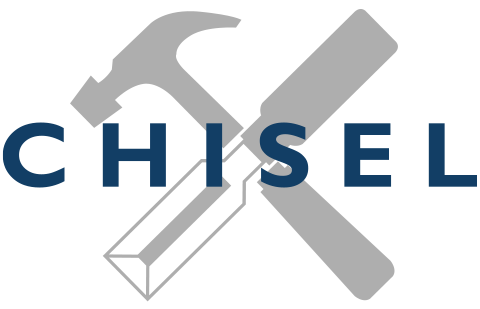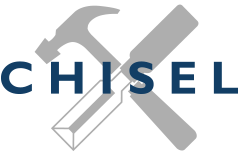Download PDF version of Safeguarding Children Policy – 2024
The Children Act 2004 (as amended by the Children and Social Work Act 2017) placed responsibilities on the police, local authorities and integrated care boards to safeguard children; these duties are to:
- provide help and support to meet the needs of children as soon as problems emerge;
- protect children from maltreatment, whether that is within or outside the home, including online;
- prevent impairment of children’s mental and physical health or development;
- ensure that children grow up in circumstances consistent with the provision of safe and effective care;
- promote the upbringing of children with their birth parents, or otherwise their family network through a kinship care arrangement, whenever possible and where this is in the best interests of the children;
- take action to enable all children to have the best outcomes in line with the outcomes set out in the Children’s Social Care National Framework.
Child protection is part of safeguarding and promoting the welfare of children and is defined as activity that is undertaken to protect specific children who are suspected to be suffering, or likely to suffer, significant harm. This includes harm that occurs inside or outside the home, including online.
Effective safeguarding means understanding and being sensitive to factors, including economic and social circumstances and ethnicity, which can impact children and families’ lives.
CHISEL recognises the importance of safeguarding and is committed to working with its partner local authorities and other statutory safeguarding partners to enable them to meet their statutory duties.
What do children need?
Government guidance states that children have said that they need:
- vigilance: to have adults notice when things are troubling them
- understanding and action: to understand what is happening; to be heard and understood; and to have that understanding acted upon
- stability: to be able to develop an ongoing stable relationship of trust with those helping them
- respect: to be treated with the expectation that they are competent rather than not
- information and engagement: to be informed about, and involved in procedures, decisions, concerns and plans
- explanation: to be informed of the outcome of assessments, and decisions and reasons when their views have not met with a positive response
- support: to be provided with support in their own right as well as a member of their family
- advocacy: to be provided with advocacy to assist them in putting forward their views
- protection: to be protected against all forms of abuse, exploitation, and discrimination, and the right to special protection and help if a refugee
What do we mean by abuse?
Abuse is a violation of a person's human rights or dignity by someone else. There are many kinds of abuse; some are listed below:
- Physical - including hitting, slapping, pushing, kicking, restraint or inappropriate sanctions
- Sexual - including rape and sexual assault or sexual acts to which the vulnerable adult has not consented, could not consent or was pressured into consenting
- Psychological - including emotional abuse, threats of harm or abandonment, deprivation of contact, humiliation, blaming, controlling, intimidation, coercion, harassment, verbal abuse, isolation or withdrawal from services or supportive networks
- Financial or material - including theft, fraud, exploitation, pressure in connection with wills, property or inheritance or financial transactions, the misuse or misappropriation of property, possessions or benefits
- Neglect or acts of omission - including ignoring medical or physical care needs, failure to provide access to appropriate health care, social care, education services or misuse of medication, adequate nutrition or heating
- Discriminatory - including racist, sexist behaviour and harassment based on a person's ethnicity, race, culture, sexual orientation, age or disability, and other forms of harassment, slurs or similar treatment
- Institutional abuse - this can sometimes happen in residential homes, nursing homes or hospitals when people are mistreated because of poor or inadequate care, neglect and poor practice that affects the whole of that service
Any of these forms of abuse can be either deliberate or be the result of ignorance, or lack of training, knowledge or understanding. Often if a child is being abused in one way they are also being abused in other ways.
Who may be an abuser?
The person who is responsible for the abuse is often well known to the person abused and could be:
- Relatives and family members
- Professional staff
- Paid care workers
- Volunteers
- Other service users
- Neighbours
- Friends and associates
- But also sometimes they could be strangers
What are the signs?
Some of the signs to look for are:
- Multiple bruising or fingermarks
- Injuries the person cannot give a good reason for
- Deterioration of health for no apparent reason
- Loss of weight
- Inappropriate or inadequate clothing
- Withdrawal or mood changes
- A carer who is unwilling to allow access to the person
- An individual who is unwilling to be alone with a particular carer
- Unexplained shortage of money
Who should you contact if you are worried?
In an emergency, always call 999.
If you are being abused or you suspect that someone you know may be the victim of abuse but it is not an emergency you should tell someone you trust, such as a family member, support worker, social worker, nurse or police officer.
You can contact CHISEL on 020 8692 5258 to report any form of abuse for which your landlord has a responsibility or if you want support or advice in liaising with a statutory safeguarding partner. We will liaise with the statutory safeguarding partners in line with their published procedure and undertake our own investigations as appropriate.

